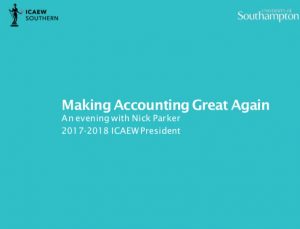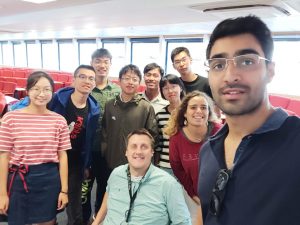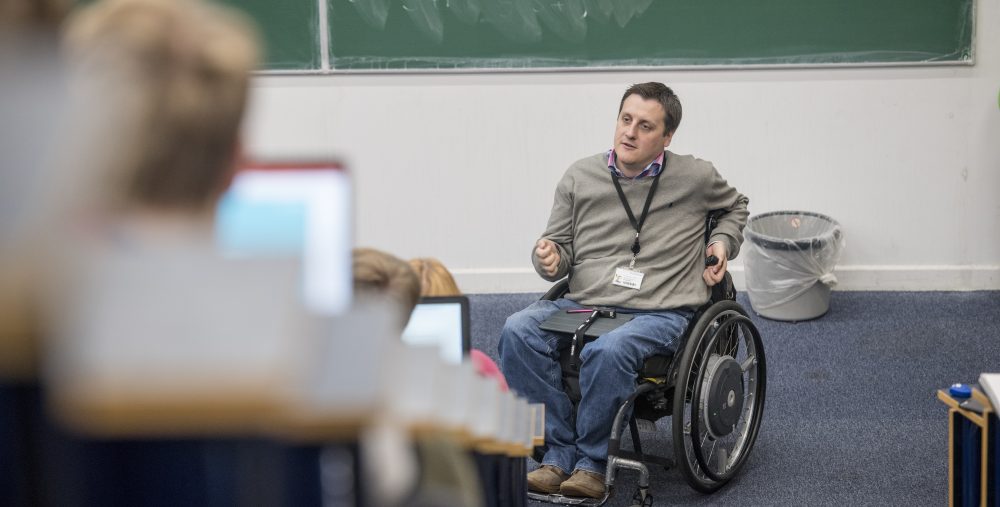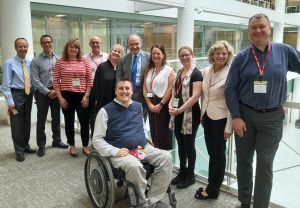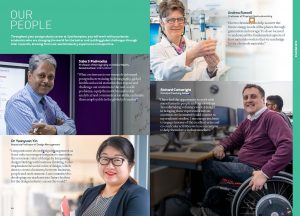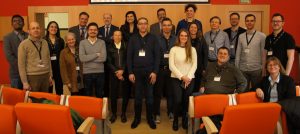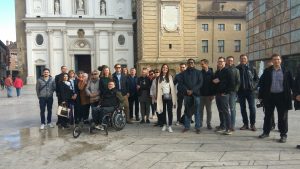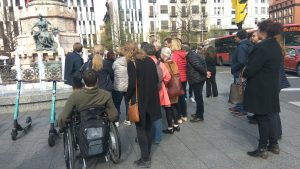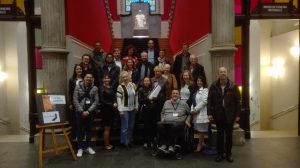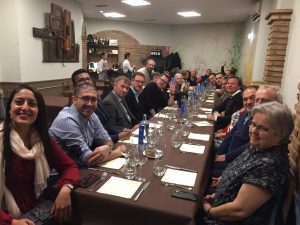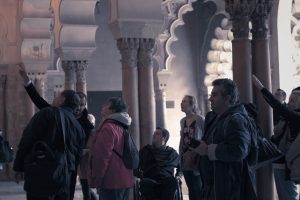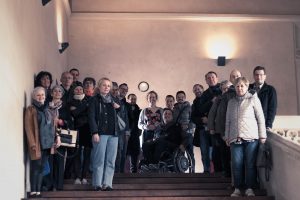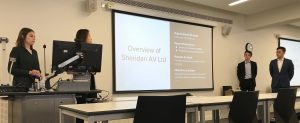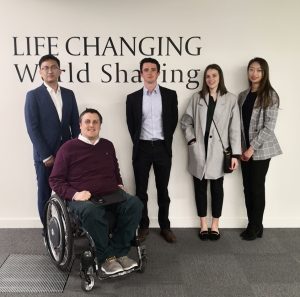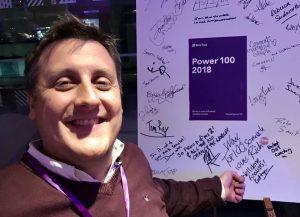The immediate Past President of ICAEW, Nick Parker addressed members of ICAEW Southern, the local business community and Southampton Business School students on 24 October. Somewhat provocatively, the event was titled ‘Making Accounting Great Again’. Hosted by Professor Martin Broad, who heads the business school and structured as a conversation with Richard Cartwright, a Principal Teaching Fellow at the business school and immediate Past President of ICAEW Southern, the event proved insightful and thoughtful. Topics covered were wide ranging, albeit with the emphasis on taxation – Nick Parker’s specialism – and audit, in the wake of recent high profile business failures.
Nick began by explaining that the role of an ICAEW President is to attend its Council meetings, chair its board and partake in dinners. The President’s best option is to focus on his – or her – own areas of particular interest and in his case, taxation and diversity figured largely.
When Nick joined the ICAEW Council in 2015, tax avoidance was much exercising HMRC, with the government willing to act if the profession did not. Nick explained how the six institutes relevant to Professional Conduct in Relation to Taxation (PCRT) worked together, with ICAEW taking the lead. The outcome was the introduction of five new standards on advising on tax, which essentially reflected the way ICAEW members operate.
HMRC was ‘quite surprised at how far the profession was prepared to go,” Nick said, with some satisfaction. The outcome is that PCRT is now a 12 page document of don’ts, with links to greater detail for use as needed, and no longer a 59 page tome.
He also covered Making Tax Digital and ICAEW’s work with HMRC, revealing that the Revenue was quite surprised to learn that small businesses largely use spreadsheets, which work perfectly well, not accounting software. Changes that have resulted from better understanding are that Making Tax Digital will now only apply to businesses over the VAT threshold and will not be applied in complex situations. Obviously, HMRC’s objective here is to reduce its own payroll.
The discussion touched on the way accountancy exams have changed since Nick, and even Richard, qualified, how artificial intelligence (AI) is taking over some basic audit activities, thereby replacing junior roles, and how professional services/consultancy are more attractive and higher earning activities for accountants.
It is impossible to consider the future of the accountancy profession without mentioning audit as there has been critical coverage of some of the biggest firms, particularly following the Carillion collapse. Certainly, ICAEW has to demonstrate its commitment to the public interest in this context, and as Nick Parker pointed out there are audit failings. However it is wise to remember that companies also have responsibilities for their own success – or not; and that the public perception of audit and the reality are not the same.
Other inquiries are in progress, but even so ICAEW is funding its own independent inquiry into audit, starting in January 2019 and reporting later in the year. The only reason that this has not gone ahead already has been the difficulty in finding an independent chair.
One issue has been that family members of some exceptionally able auditors have been subjected to hate mail following high profile business failures. It is hardly surprising that talented accountants are, quite reasonably, shying away from this specialism in response, not wishing to see their own families on the receiving end.
Diversity, gender equality and societal issues that affect careers also received attention, via questions Richard Cartwright posed and those from the audience. Early in the conversation, Nick stated that diversity is important, believing that the profession should be readily open to anyone who is interested and capable. Diversity was the theme of his presidential year, and he helped to create a diversity community with information on best practice on the ICAEW website.
One aim, for example, is to support someone who might feel somewhat isolated as the only LGBT person at their level in a small company. However, the website, which is open to all and deals with the full range of diversity to be found across society and therefore the workforce.
Nick considers that affirmative action may result from the pressure on companies to close the gender pay gap, and that women might therefore benefit when a recruiter is faced with equally able male and female candidates and has to choose one. He observed that the gender pay gap is a societal issue, not at all the same as equal pay, but usually the result of more having women in the bottom pay quartile and more men in the upper quartile, due women’s roles within the family.
While the solution is a matter for society as a whole, and the evolution of attitudes towards family versus career responsibilities and opportunities, it would seem that the right mindset is very much present within ICAEW and that accountancy will continue to be a great career choice for the foreseeable future.
